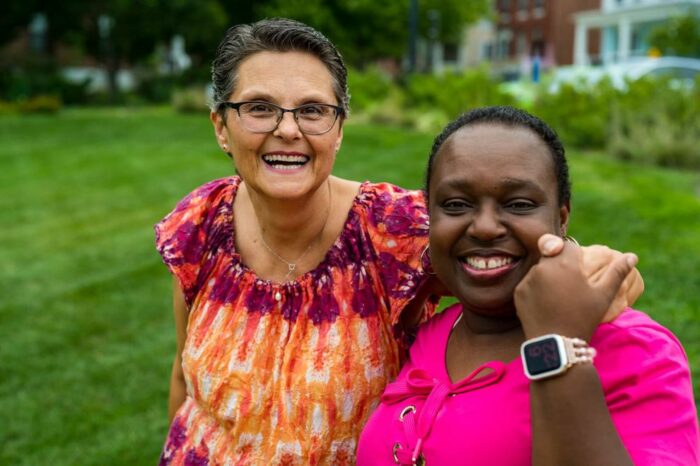The Power of Connection: Navigating the Patient Journey
January 15, 2025 9:02 pmby Heather Hinnah, MSW, LCSW Senior Director of Programs and Clinical Engagement at Gateway to Hope
When my aunt was diagnosed with breast cancer in 2016, I found myself drawn into her experience—not just as a family member but as someone equipped with a social work background. Sitting with her through appointments, advocating for her care, and witnessing her resilience inspired me to take a closer look at how I could support others navigating similar paths.

That’s what ultimately led me to Gateway to Hope. The mission to provide person-centered care, moving beyond a traditional medical model, resonated deeply with my values as a social worker. Joining as a patient navigator in 2019, I’ve watched our program evolve, anchoring itself in what matters most: the human experience.
Heather Hinnah, MSW, LCSW
What Patient Navigation Means at Gateway to Hope
Patient navigation is a term you may have heard before, but at Gateway to Hope, it carries a special meaning. We see it as bridging the gap between the healthcare system and the unique needs of each individual.
Our work doesn’t end with a diagnosis, in fact, many times, that is where it begins. Patients come to us at some of the most vulnerable moments of their lives, and we meet them where they are. Their needs might include financial assistance, transportation, or simply someone to listen. Breast cancer is a chapter in their story—not the entire book. We focus on their most pressing concerns and ensure they have the support they need to move forward.
For example, during the holiday season, one young mother battling breast cancer worried less about her treatment than about how she could give her children a joyful Christmas. For her, we coordinated support to make sure her children had gifts under the tree, offering a moment of relief and connection during an incredibly challenging time.
What makes this program transformative is its holistic approach. Our navigators don’t just address a patient’s medical journey—they tackle the everyday hurdles that can feel insurmountable in the face of a cancer diagnosis. From helping patients secure housing to addressing mental health challenges, our focus is on fostering hope and resilience.
I’ve seen how life can get in the way of treatment, and how our work as navigators can help people manage the most stressful situations. One patient, a young mother in her twenties, had delayed care for over a year due to the demands of caregiving and a lack of insurance. When she finally sought help, her cancer was advanced. On the morning of her critical screening appointment, her car was repossessed. Our team was able to respond immediately, securing transportation and ensuring she didn’t miss the appointment. It’s moments like these—meeting someone’s needs in real time—that define our work.

The Special Role of Navigators
Our navigators are a remarkable group of individuals. They are compassionate, resilient, and adaptable, stepping into deeply personal and unpredictable situations with grace and care. Their role requires more than technical expertise; it demands emotional intelligence and the ability to support patients through fear, anxiety, and moments of crisis.
This work isn’t easy. Navigators absorb the weight of their patients’ struggles while ensuring they show up regulated, grounded, and present. It’s a balance that requires team support, self-care, and a shared commitment to the human connections at the heart of what we do.
Why This Program Works
The success of Gateway to Hope’s navigation program lies in its flexibility and person-centered approach. We’re able to respond creatively to unique needs—whether that’s replacing a broken stove or helping someone secure transportation to life-saving treatment.
Our focus is always on the individual. This isn’t about numbers or checkboxes; it’s about helping someone see beyond their diagnosis, regain stability, and rediscover hope.
“How we treat each other matters.” This simple yet profound belief is at the core of everything we do. Every patient we help, every moment of connection we create, is made possible by the generosity of donors, the dedication of our team, and the unwavering belief that everyone deserves to face their journey with dignity and support.
For more information on Gateway to Hope, or to refer yourself or a friend or relative to our Patient Navigation program, visit mobreasthealth.org or call (877) 484-4584.
